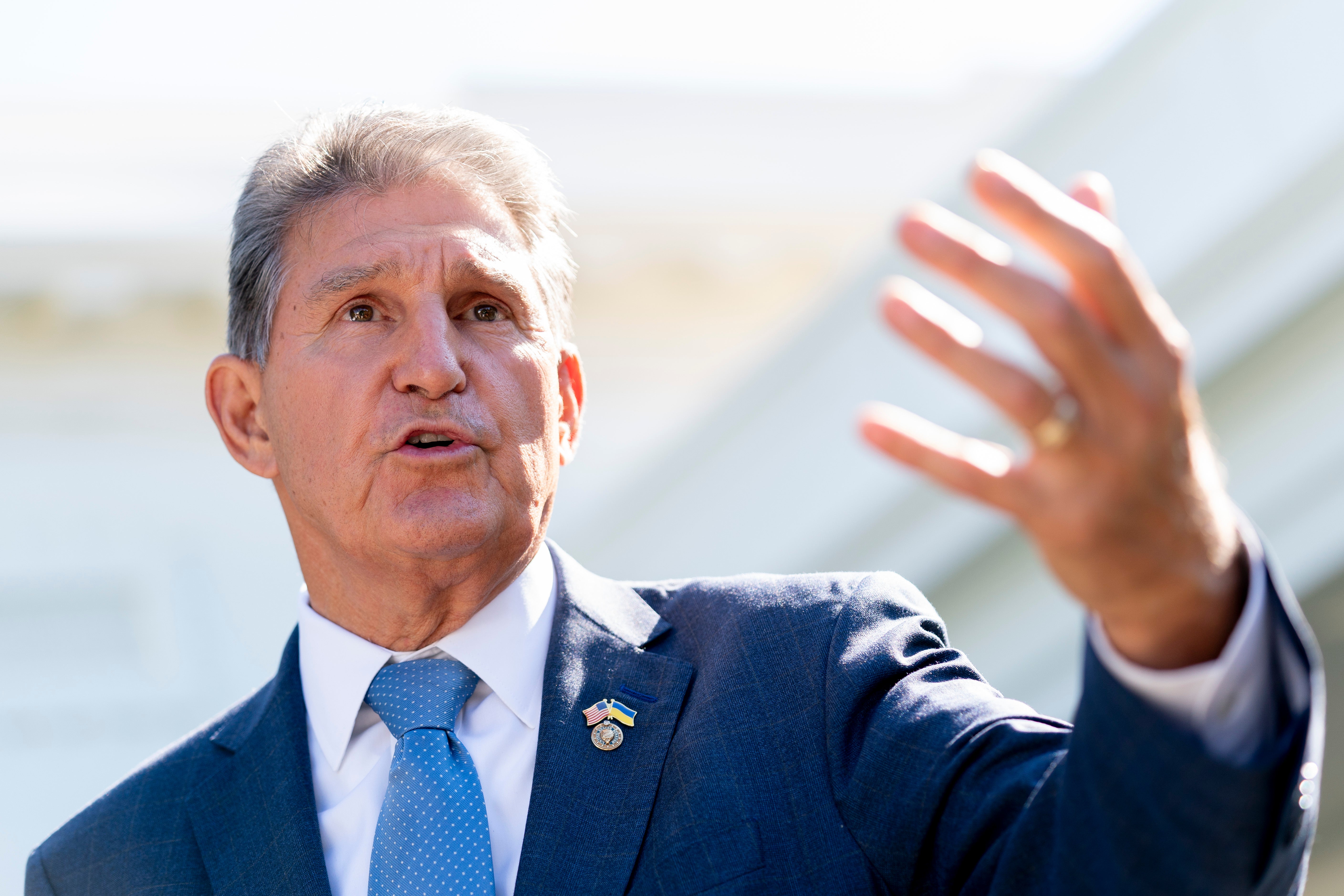After climate bill passage, WVa natural gas plant unveiled
A Maryland company says it will build a natural gas power plant designed to capture climate-changing carbon in northern West Virginia

A Maryland company announced Friday it will build a natural gas power plant designed to capture climate-changing carbon in northern West Virginia. Officials said it was made possible by a recently signed law embraced by Democratic Sen. Joe Manchin that gives tax breaks for alternative energy projects.
Competitive Power Ventures of Silver Spring, Maryland, will construct the 1,800-megawatt plant in Doddridge County, a top producer of natural gas in the state. More than 1,000 union jobs will be used in the construction of the combined-cycle plant, and the natural gas used by the facility will support hundreds of additional jobs, the company said.
“CPV is pleased to work closely with West Virginia to bring this project to fruition in the coming years,” company CEO Gary Lambert said in a statement.
The company said the extensive regulatory approval process has already started for the $3 billion project and officials expect it to go into operation later this decade.
President Joe Biden signed the legislation last month that will invest $375 billion to fight climate change over the next 10 years. In addition to addressing health care costs and prescription drug prices, it will direct spending, tax credits and loans to bolster technology like solar panels, consumer efforts to improve home energy efficiency, emission-reducing equipment for coal- and gas-powered power plants, and air pollution controls for farms, ports and low-income communities.
The signed measure is a slimmed-down version of a more ambitious plan that Biden and Democrats unveiled early last year but was deemed too costly by Manchin.
“I’m pleased Competitive Power Ventures is investing in the Mountain State and look forward to seeing the benefits of this investment — including long-term, good-paying jobs and supporting our regional economies — for years to come,” Manchin said in the statement.
Some states are transitioning away from carbon dioxide-emitting fossil fuels to reduce greenhouse gas emissions and stave off the worst effects of a warming planet.
In late 2020, a study by researchers from the University of California, San Diego, found over 80% of 39 projects that have sought to commercialize carbon capture and storage ended in failure. The study cited lack of technological readiness as a top factor. Critics say carbon capture would require more energy to power the equipment, resulting in more air pollution because the technology can only catch a portion of the carbon emitted by a facility.
West Virginia Gov. Jim Justice signed a bill earlier this year that established rules for companies using carbon sequestration.
“This is an outstanding day for West Virginia,” Justice said in the statement. “Competitive Power Ventures and the innovation they bring to the energy industry is amazing.”
CPV develops low-carbon electrical generation and conducts asset management services in the North American market. CPV is a subsidiary of Israel-based OPC Energy and was acquired in 2020.
CPV said it has combined gas and steam turbine projects in operation in Connecticut, Maryland, New Jersey, New York, and Pennsylvania, and a wind farm in western Oklahoma. Another combined-cycle facility is being built in northern Illinois, and solar power facilities are under development in Massachusetts and Pennsylvania.
Earlier this week, Justice announced that a firm owned by billionaire businessman Warren Buffett has partnered with the state to buy and develop more than 2,000 acres (800 hectares) in Ravenswood for a $500 million industrial park powered by renewable energy sources.
In February, the Republican governor signed a bill eliminating the state’s 26-year-old ban on nuclear power plants.
West Virginia is the nation’s second-largest coal producer, behind Wyoming, and accounted for 5% of the nation’s total energy production in 2019, ranking fifth among the states, according to the U.S. Energy Information Administration. But West Virginia has lost thousands of coal jobs in the past decade as companies and utilities explore using other energy sources such as natural gas, solar and wind.
In 2020, coal-fired electric power plants accounted for 88% of West Virginia’s electricity generation. Renewable energy resources, primarily hydroelectric power and wind energy, contributed almost 6% and natural gas provided more than 3%.
Bookmark popover
Removed from bookmarks